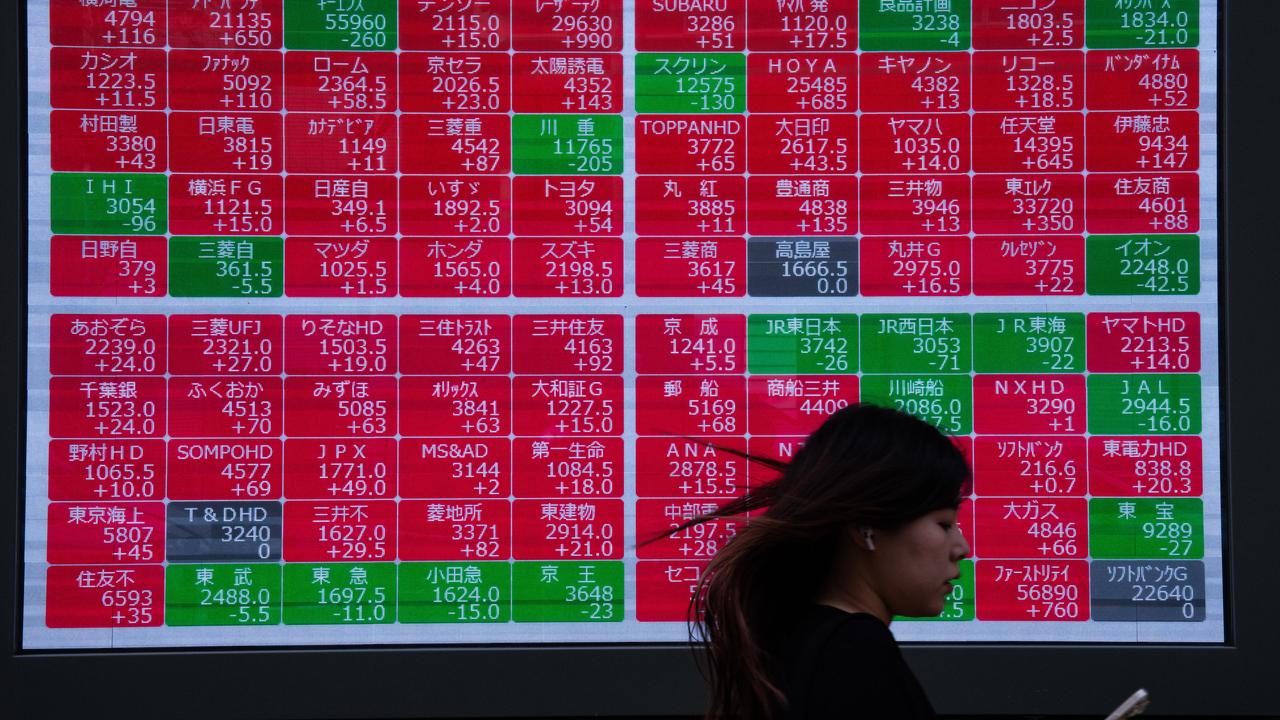
Stocks and gold paused for breath on Thursday as the US Congress voted to end the longest government shutdown on record, with markets waiting for the resumption of US economic data to gauge the rates outlook.
US stock futures traded either side of flat.
Japan’s Nikkei was 0.5 per cent firmer but the broad Topix index climbed nearly 1.0 per cent to a record high as investors shifted portfolios from the frothiest artificial intelligence firms to buy exposure to other parts of the economy.
Similar moves had been afoot overnight, along with a jump in the gold price above $US4,200 ($A6,419) an ounce and a modest rally for bonds that has the US 10-year yield at 4.067 per cent.
US President Donald Trump, who was expected to host Wall Street executives for dinner on Wednesday, would sign a bill to end the government’s shutdown at 9:45pm, the White House said.
Delayed economic data will likely trickle out next week, economists expect, and the focus is on whether it will back up private surveys that have shown softness in the job market.
“One of the arguments now is with reopening, we should get a lot of data coming through that will give more clarity for (Federal Reserve Chair Jerome) Powell to say: ‘I’m cutting rates because of this,’” said Damian Rooney, director of institutional sales at Perth-based stockbroker Argonaut.
In the Aussie market volumes were a little light but there was a bid for lithium and gold miners, he said, as lower interest rates tend to drive buyers for gold.
“It means these guys are making a lot of lolly in Aussie dollar terms. I think we’ve got a bit more legs there,” Rooney said. Most other sectors fell in Australia and the index was 1.0 per cent lower.
Hong Kong’s Hang Seng retreated slightly from a one-month high and the Shanghai Composite rose 0.1 per cent.
On Wall Street the Dow Jones index notched a record high overnight while the tech-heavy Nasdaq retreated.
In London the mining-heavy FTSE 100 closed at a record high. Bank stocks also pushed the pan-European STOXX 600 to record peaks while Italy’s FTSE MIB has hit its highest in almost a quarter of a century.
Japan’s yen has come under renewed pressure as the country’s new premier has been pushing the central bank to go slow on further rate rises. It hit a record low of 179.49 per euro and was near a nine-month trough on the dollar at 154.94.
The yen touched 155.05 against the dollar on Wednesday, prompting the finance minister to remind traders the government was watching closely in a prelude to possible intervention in the market.
Bank of Japan Governor Kazuo Ueda appeared before parliament on Thursday and said underlying inflation was gradually accelerating toward the bank’s target.
Elsewhere in foreign exchange trade the Australian dollar ticked higher after data showed a surge in employment in October, bolstering a view that the easing cycle there may have run its course.
The Aussie was last up about 0.2 per cent at $US0.6552 ($A1.0014) and expectations of a cut in May dropped from nearly 70 per cent to 32 per cent.
US Treasuries were steady. Brent crude futures inched down to a three-week low of $US62.48 ($A95.49) a barrel after OPEC shifted its projection to forecast a small surplus to oil demand for 2026.